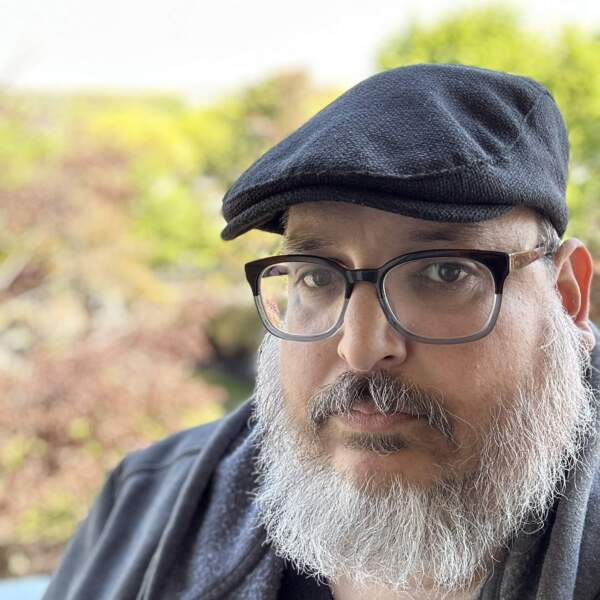Advertisement
How Boston-area schools are handling campus encampments

2024 may be the most significant year of college student protests since the civil rights and anti-war demonstrations in the late 1960s. Hundreds of students demanding a cease-fire in the Israel-Hamas war, and for their respective universities to divest from companies that do business with the Israeli government or military, have camped out on quads, commons and greens to make their voices heard. People at the camps have held signs, shouted, chanted and used bullhorns to call attention to the tens of thousands of civilian lives lost in Gaza.
Counterprotesters have cropped up to advocate for Israel's right to exist and respond with military force following Hamas' deadly incursion into southern Israeli towns. Some Jewish groups have expressed concern about student safety and harassment during the protests. On many campuses, Jewish students and faculty have claimed instances of antisemitism or even violence directed toward them. However, pro-Palestinian demonstrators hotly contest these claims, including many Jewish-backed groups.
And administrators have sent missives and public statements trying to weave a path between respect for free speech, their duty to provide a safe campus, and pressure from donors and politicians in a polarizing election season.
The protests have roiled students, staff and administrators as they prepare for commencement — the culmination of academic achievements and a showcase for the universities.
While Columbia University in New York and UCLA in California have garnered the most recent national headlines, several schools in the Boston area are also embroiled in these standoffs. Encampments have popped up in outdoor areas on both sides of the Charles River.
Two camps — one at Emerson College and the other at Northeastern University — were raided by police, who arrested more than 100 people at each location. Others remain at Harvard University, and MIT, though administrators at each have said the tents must come down.
School leaders have taken different tacks to the situation. While Harvard has taken a mostly hands-off approach to the protests on campus, administrators preemptively shut down Harvard Yard to the public in anticipation of the student action. Meanwhile, Northeastern took a more aggressive stance, calling in police after scores of people gathered on its Academic Green and the school received reports of hate speech at the protest site.
Northeastern professor emeritus Martin Blatt said he's spent a lot of time at his school's encampment and visited several others in the area. He supports the students holding the protests.
"I oppose [Northeastern's] administration's move to clear the encampment and in particular, this really horrific lie that the university employed, which is accusing the protesters of saying, 'kill the Jews,' " Blatt said.
While Northeastern has said students at their encampment would face disciplinary action, Emerson has gone the other way, saying students arrested by police will not face further sanctions from the school.
Emerson student Angus Abercrombie said he felt the school was trying to give itself a free pass for the actions of police by saying they did not ask to have the encampment cleared.
"I think that has allowed our administration to kind of play the good guys in a way that perhaps they didn't quite earn," he said.
He hoped school leadership would meet with protesters to discuss their concerns.
"I know there are some schools that have actually met with protesters [and] taken on their demands, set up new committees, released new disclosures and even some that are taking steps to divest from certain companies," he said, though he did not name schools that have done so.
Brown University this week announced it would hold a divestment vote in October, ceding a key demand of protesters on the Providence school's campus.
Rabbi Ron Fish, interim regional director of the Anti-Defamation League of New England, said he was concerned that schools would buckle to demands made by protesters who had broken campus rules and, he argued, in some cases "are obviously expressing contempt for their fellow students, who have the equal right to every space on the university."
There should always be room on campuses to discuss and debate even difficult topics like the war in Gaza, he said, but schools should not allow an atmosphere of "fear" and "lawlessness" to develop where students live and sleep.
"There's space to talk about Zionism, space for people to challenge the Israeli government for sure, but there cannot be space in which Zionists are not welcome on campus," Fish said.
At MIT, administrators on Wednesday said the current goal is to maintain safety for both protesters and others on campus.
"The gathering is on a single lawn, and MIT has set up fencing along adjacent pathways to ensure students can pass the area with a feeling of security," said MIT spokesperson Kimberly Allen. "Student Life staff, faculty, and MIT Police have been present on an ongoing basis."
Here's where things stand at each campus as of Wednesday, May 1.
Tufts
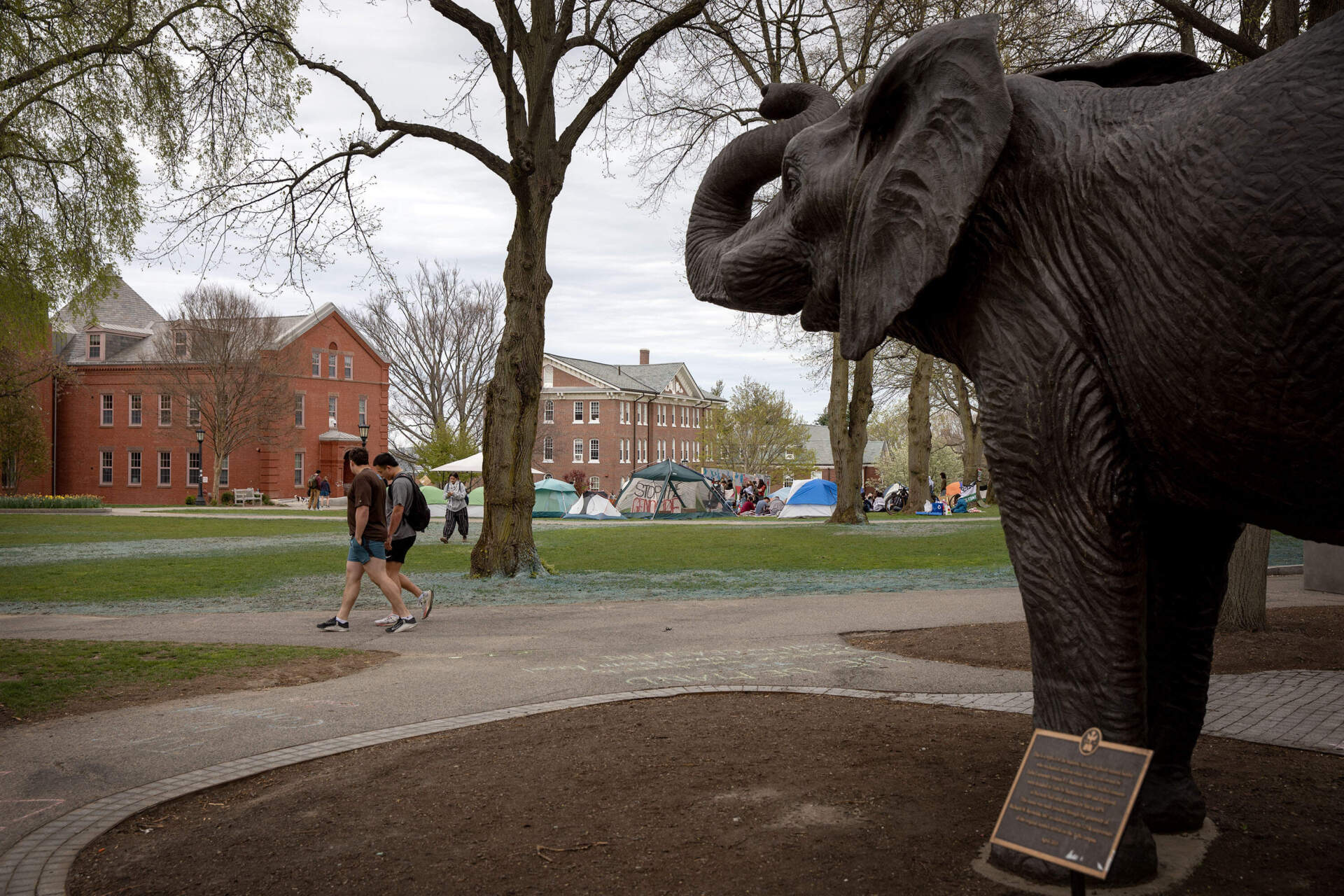
The latest
On Friday night, the protesters announced on Instagram that they dismantled the encampment, but did not elaborate on the reason.
Tufts spokesperson Patrick Collins told media that the university is pleased the protest "has been resolved peacefully and voluntarily."
However, both parties noted they did not come to an agreement over the protesters' demands of the university. In a statement, SJP said the administration "offered our Gaza Solidarity Encampment a bad-faith deal that fails to end the university's complicity in the ongoing genocide in Palestine." The group also said the university did not agree to provide "amnesty" for students involved.
The protesters said even though they took down the encampment, it is not the end of their organizing and "disrupting business as usual until this university cuts its ties with and fully divests from the zionist entity."
Earlier in the week, the school's administration sent a brace of missives — one public, one directly to the protesters — saying the camp must come down, and that anyone still ensconced on the campus' Academic Green would be deemed trespassing.
Tufts President Sunil Kumar said students could face discipline, such as suspension or denial of the right to sit for their own graduation ceremony. According to the student-run Tufts Daily, an emailed message from the school's legal department to a group that helped organize the encampment threatened arrests.
In a letter circulating last week and signed by more than 300 people who identified as Tufts seniors, students pledged to boycott the school's commencement if administrators brought in police to clear the encampment.
"Let us be perfectly clear: we believe that ending the University’s complicity in slaughter and famine in Gaza is far more important than holding a 'normal' commencement ceremony," the letter reads. "As members of the Tufts community, we strongly urge you to meet the encampment’s demand for University leadership to engage in dialogue with the student protesters about the University’s financial complicity in the ongoing devastation of Gaza."
Tufts main commencement ceremonies are scheduled for Sunday, May 19.
What the protesting students want
The Students for Justice in Palestine at Tufts has called for a cease-fire in the war in Gaza. More directly, they want to meet with Kumar and others to discuss the university divesting from Israeli companies — a tactic used in the 1980s and 1990s to pressure the South African government to end its policy of apartheid.
Tufts' stated objections to the encampment
In its public statement on Tuesday, Kumar laid out several issues with the encampment that the university could not abide, including:
- The presence of people from outside the university in the encampment.
- The use and defacement of rented chairs that the university must return.
- Claims protesters have "harassed and intimidated" staffers sent to clean near the camp.
- The protesters' refusal to move their encampment to allow the university to prepare for commencement.
Northeastern
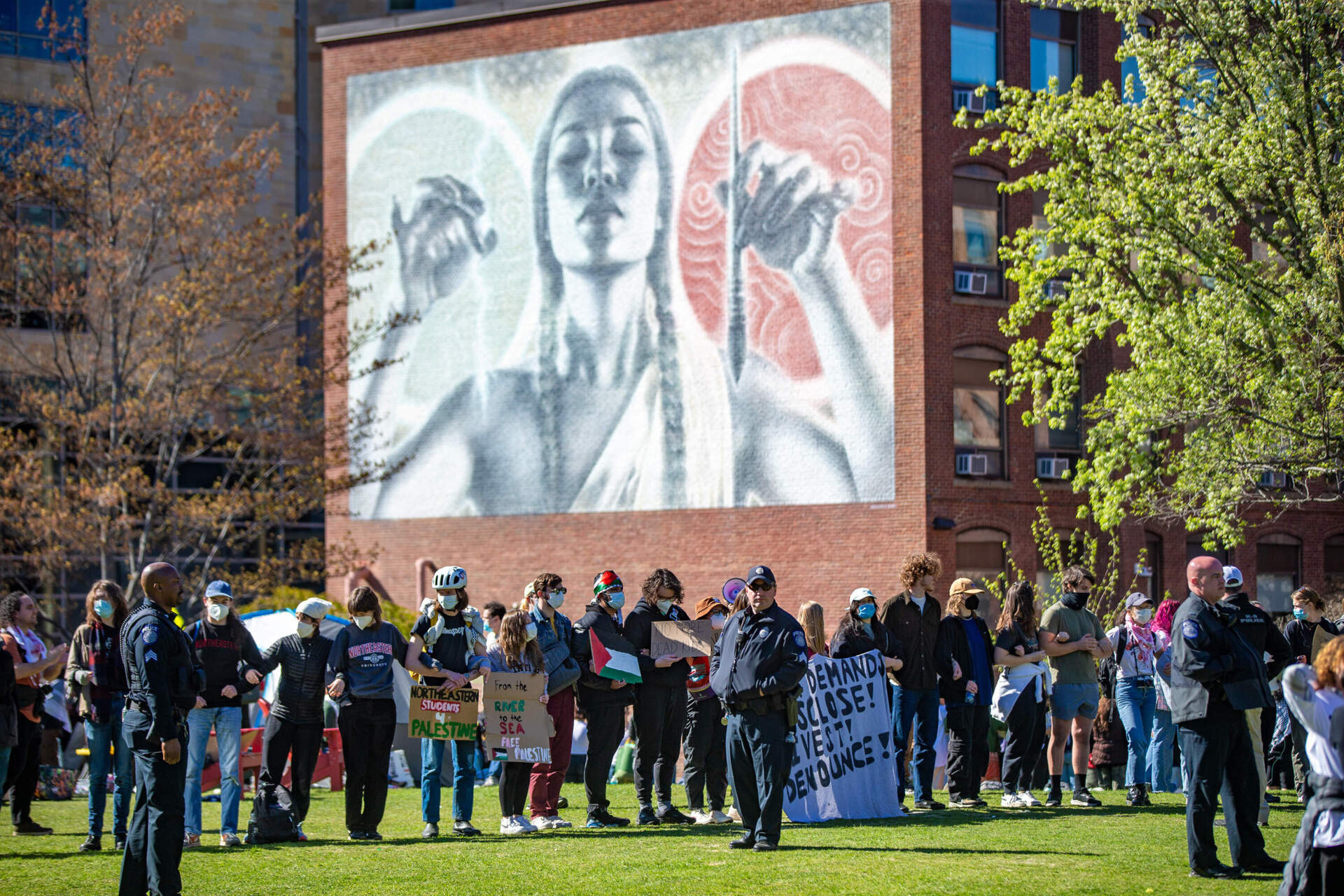
The latest
Police from multiple jurisdictions converged on the encampment at Northeastern early on Saturday, April 27, arresting around 100 people after the school's administrators asked them to step in. Administrators had said anyone with a valid school ID would be allowed to leave the encampment, while others would be arrested.
Students arrested when police broke up the Northeastern University encampment are appearing in Roxbury District Court this week. Students were arraigned on two charges — criminal trespassing and failure to disperse. There was a blanket resolution for all of the students: They must complete 20 hours of community service and stay out of trouble for six months. They also are not supposed to go near campus except for educational activities or if they live in a university-owned building. They also may face disciplinary action by Northeastern.
In an interview with WBUR after court, Sahra Ahmed, a second year student, said the tent encampment worked by drawing attention to the war in Gaza. She said she was encouraged to see the protest grow.
"We were able to educate people, I think that that was a win," she said. "But what wasn’t a win was our demands. We want Northeastern to divest and they haven’t considered it at all."
Northeastern leaders have not agreed to meet with students about ending investments that support Israel’s war efforts. In its statement, the school said, "Numerous attempts by our Student Life staff to engage directly with students were repeatedly rejected."
Northeastern's commencement activities have begun, and stretch through May 10. The main undergraduate and graduate ceremonies were held at Fenway Park on Sunday, May 5.
One graduating student was arrested during a protest that briefly disrupted the commencement.
Senior class president Rebecca Bamidele addressed the civilian casualties in Gaza in her speech, saying, "The lives of these mothers in Gaza and the entire population ... remain at risk, every day that remains without a permanent cease-fire in Gaza."
What the protesting students want
The demonstrators have asked that the school divulge its financial interests and divest from companies connected to Israeli companies, denounce what the group calls a genocide in Gaza, call for a cease-fire and an end to Israeli occupation of Palestinian territories.
Northeastern's stated objections to the encampment
- Northeastern, quoting an article in The Boston Globe and unnamed witnesses, said someone at the camp shouted "Kill the Jews." Videos from the protest appear to show the person who uttered the slur was actually a pro-Israel counterprotester. The university would not confirm that was the same incident, instead saying there was no context where that language could be allowed.
- The encampment is an "unauthorized occupation of university space."
- The presence of people from outside the university in the encampment, which Northeastern said they could not directly "hold accountable."
- The university's police department said it "eventually concluded that the protest would soon present a threat to the safety of all involved."
Harvard
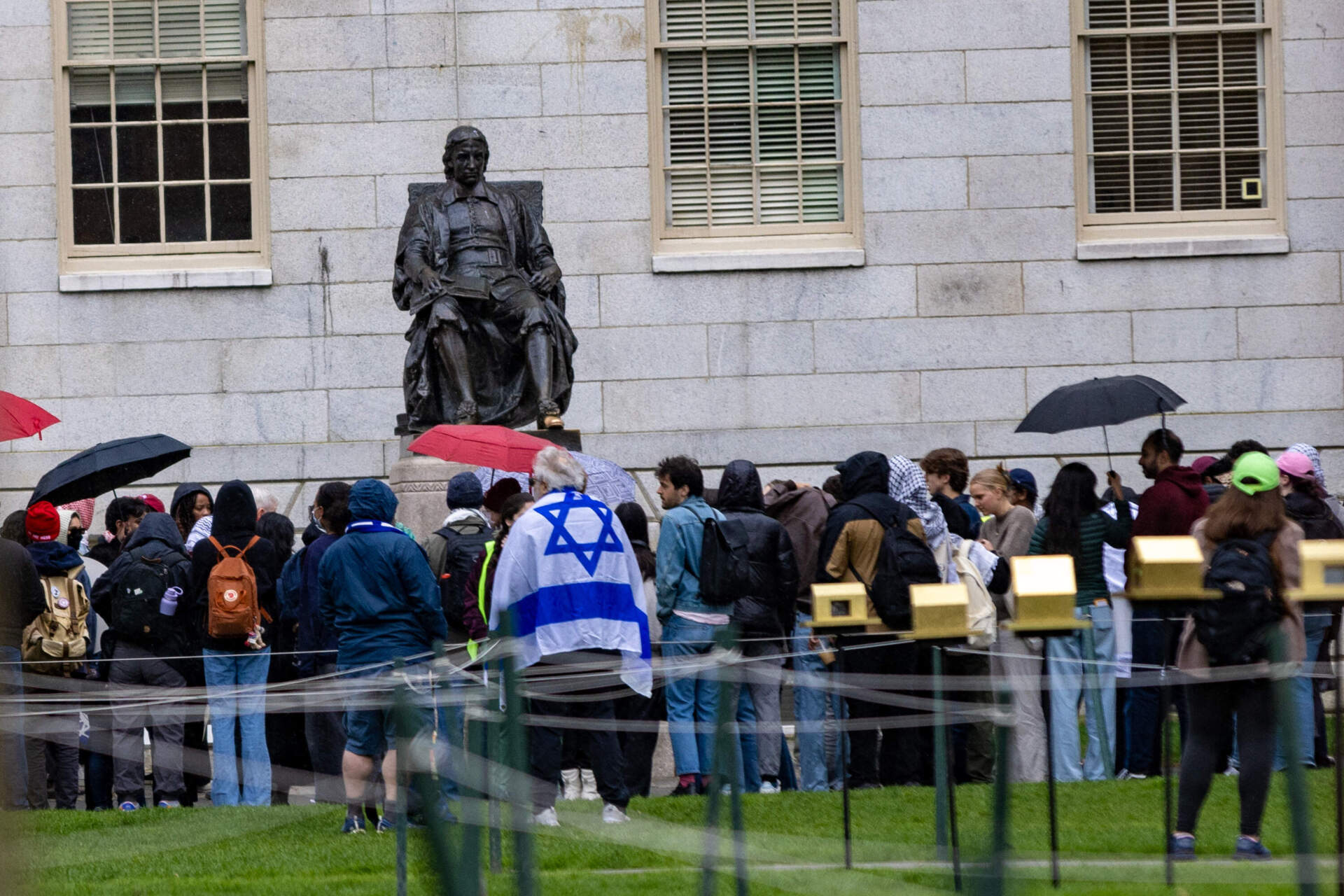
The latest
Compared to the actions at other universities, things at the Harvard camp have been relatively tranquil. The encampment, which sits across from the John Harvard statue in Harvard Yard, sprung up during a protest on April 24.
Administrators have said students participating in the protest have violated several university policies, and that more than 30 will reportedly face discipline. After former President Claudine Gay's resignation at the start of this year, Harvard recirculated rules that bar disruptive protests on its campus.
Harvard will hold its commencement activities from May 21 through May 24, with the major ceremony on Thursday, May 23.
What the protesting students want
The students in the camp want Harvard to divest from Israeli companies in the West Bank, according to the Harvard Crimson. They are also protesting the school's decision to suspend the campus Palestinian Solidarity Committee.
Harvard's reaction to the encampment
Harvard President Alan Garber said the school has set a "high, high bar" for calling for police action to dismantle the encampment.
MIT
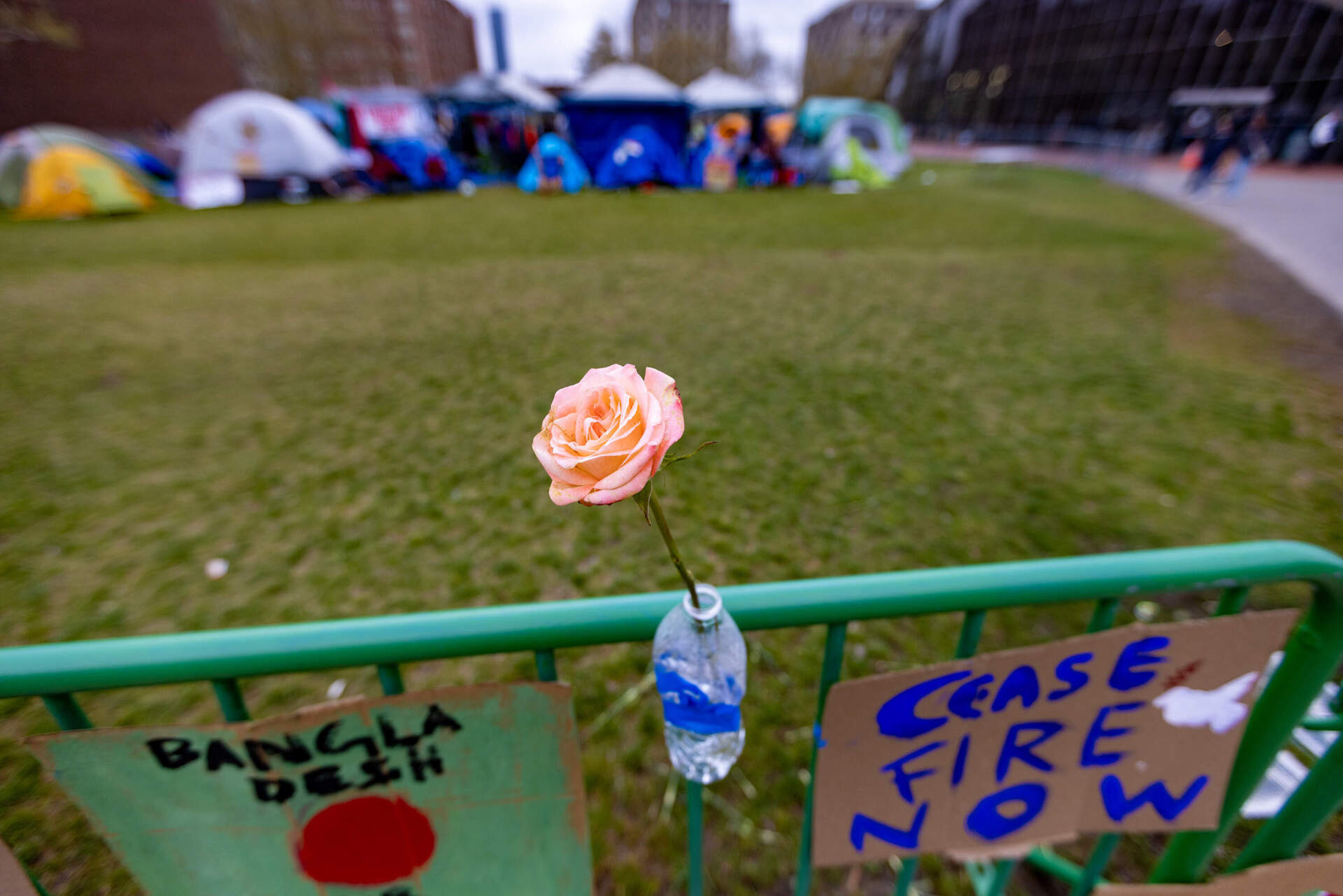
The latest
Much like Harvard, the MIT encampment has not seen the same fireworks as other protests. In a video address posted over the weekend, MIT President Sally Kornbluth cited the peaceful nature of the gathering while claiming protests had become violent elsewhere. She did say the encampment "must" come to an end but did not set any deadlines.
MIT's commencement celebrations are scheduled to take place from May 29 to May 31.
What the protesting students want
The Coalition Against Apartheid, who organized the camp, want MIT to stop research that directly or indirectly benefits Israel's Ministry of Defense, sever any ministry involvement in non-research initiatives and to provide transitional funding for graduates and staffers whose work may be affected by ending those relationships.
MIT's stated objections to the encampment
- The encampment has become "a magnet for disruptive outside protesters."
- The encampment is using space reserved by other groups.
- Keeping the encampment safe is "diverting hundreds of staff hours around the clock."
Emerson
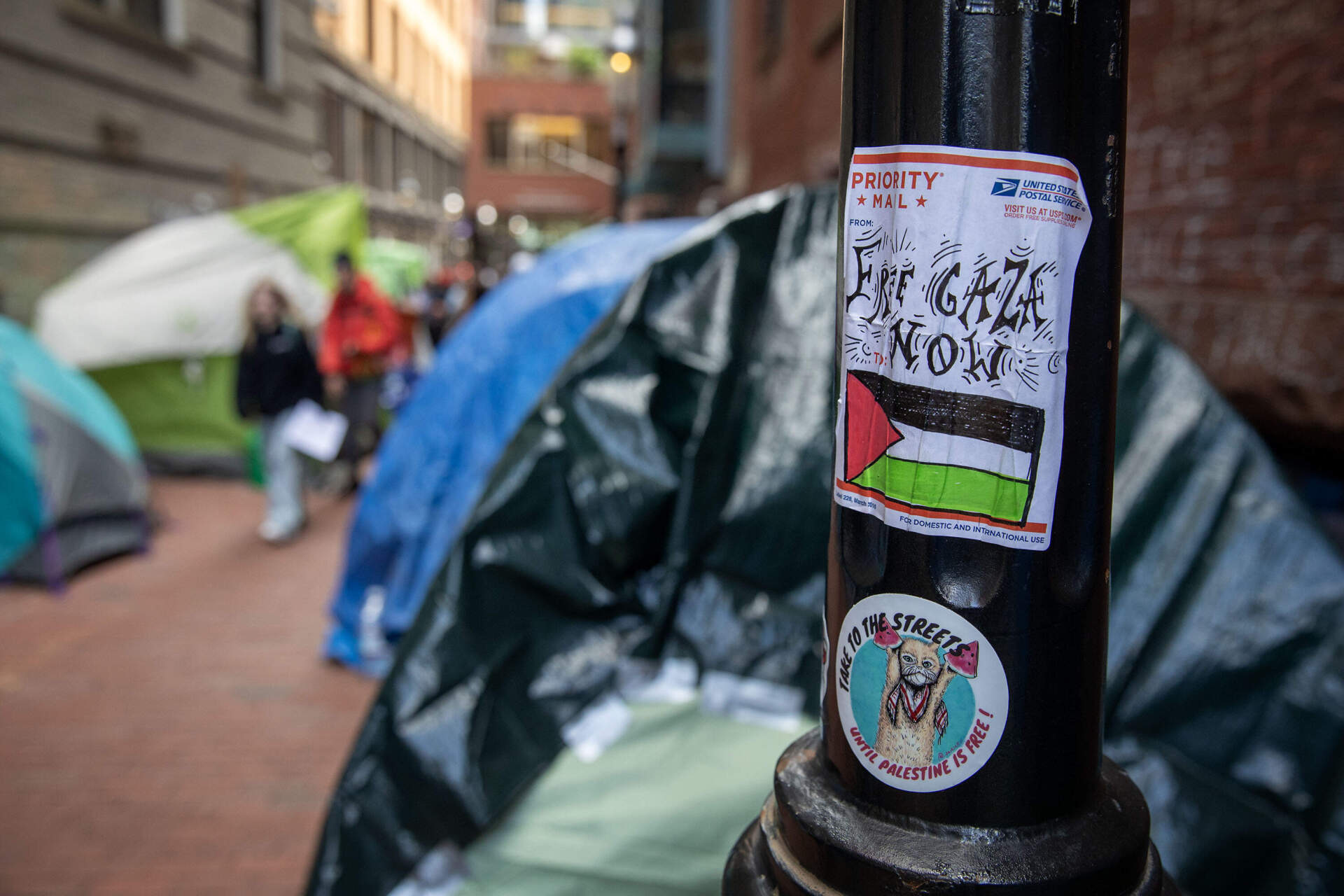
The latest
Emerson's encampment was the first to get rousted by police, who cleared out the tents at Boylston Place and arrested 118 people in the middle of the night. College leaders were quick to say they warned the protesters of coming police action and did not ask law enforcement to empty out the area, which is owned by the school but contains a public right-of-way. The Emerson students who were swept up in the mass arrests are in a similar place as their Northeastern counterparts, where their lawyers say they could escape their charges if they complete community service.
Emerson's commencement activities mostly take place off campus. They are scheduled for May 11 and May 12.
What the protesting students want
Students at the encampment said they formed in solidarity with a similar camp that had been recently broken up at Columbia University. They also called for the school to divest from companies in Israel and demanded the school call for a cease-fire in Gaza, according to the Berkley Beacon, Emerson's student-run paper.
Emerson's stated objections to the encampment
- Any protest must be made "in a manner consistent with the laws of the City of Boston and the Commonwealth of Massachusetts."
- By setting up in the alley, the protesters were "risking legal consequences beyond Emerson’s control when they do not abide by city and state laws."
- Administrators said they had reports of encamped students impeding pedestrians in the alley, and blocking doors and hydrants.
- They also cited "credible reports that some protesters are engaging in targeted harassment and intimidation of Jewish supporters of Israel and students, staff, faculty, and neighbors seeking to pass through the alley."
WBUR's Carrie Jung, Suevon Lee, Beth Healy, Lisa Creamer, Martha Bebinger and Amy Gorel contributed to this story.
Correction: A previous version of this story incorrectly characterized the Harvard administration's position on the encampment on its campus. The administration believes the protest has violated school rules. We regret the error.
This article was originally published on May 01, 2024.
